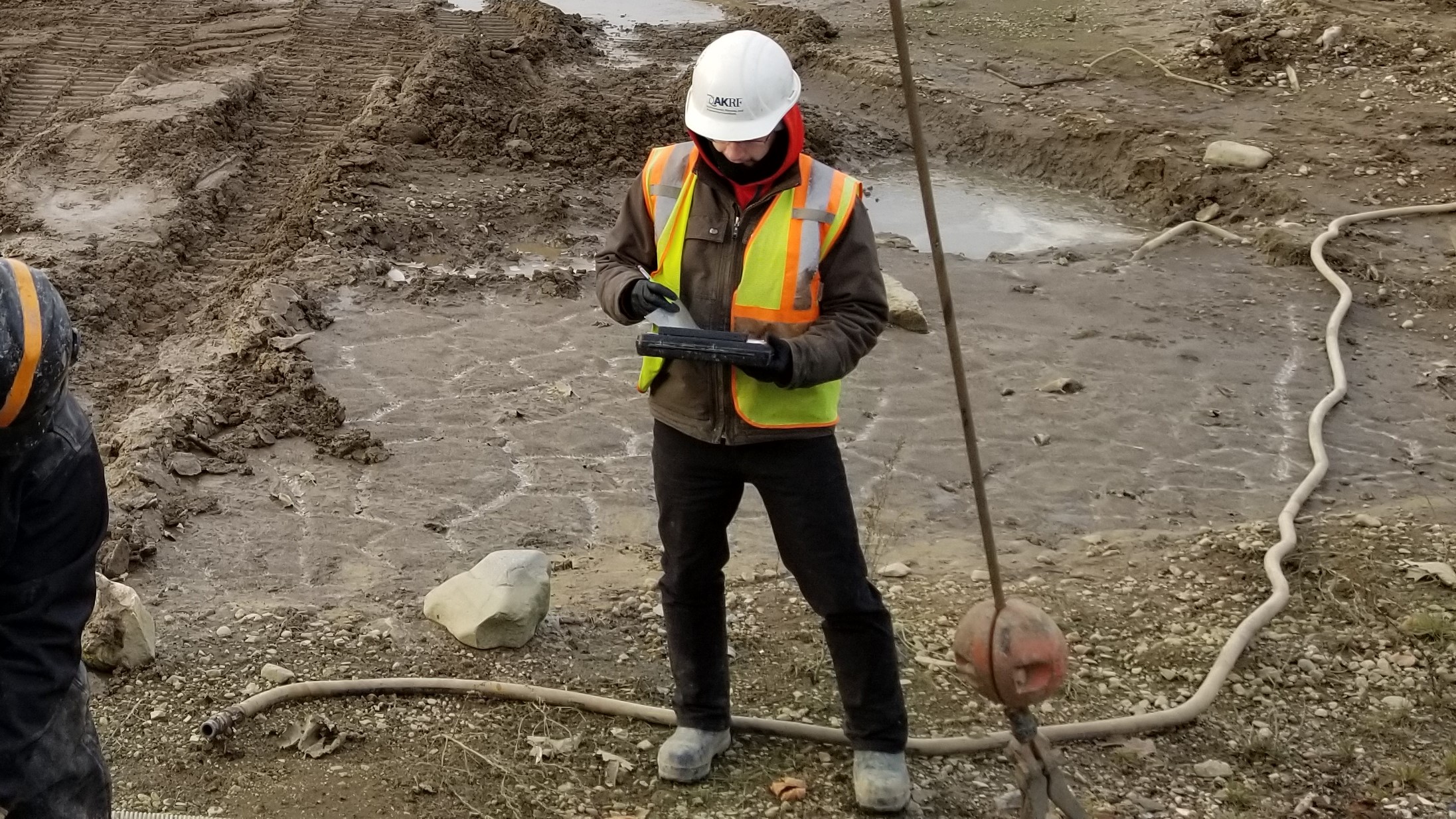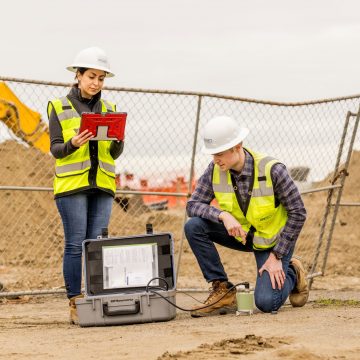Why Employing a Geo Tech Engineer is Crucial for Complicated Building And Construction Projects
Why Employing a Geo Tech Engineer is Crucial for Complicated Building And Construction Projects
Blog Article
The Interdisciplinary Approaches in the Geotechnical Market: Bridging the Space In Between Engineering, Geology, and Environmental Scientific Research for Optimal Task End Results
The integration of engineering, geology, and ecological scientific research within the geotechnical industry is not simply beneficial; it is crucial for accomplishing ideal job outcomes. What strategies might arise to promote this crucial cooperation and enhance the efficacy of geotechnical techniques?
Value of Interdisciplinary Cooperation
The value of interdisciplinary collaboration in the geotechnical market can not be overstated. Reliable geotechnical jobs require the combination of diverse know-how from different areas, consisting of engineering, geology, and environmental science. This collaboration makes certain that all facets of a task are taken into consideration, leading to comprehensive remedies that resolve complicated difficulties.
Interdisciplinary collaboration cultivates technology by allowing specialists to share understandings and methods that might not appear when operating in isolation (geo tech engineer). By leveraging the staminas of multiple self-controls, groups can determine possible risks, optimize layout procedures, and boost the sustainability of geotechnical projects. Such cooperation advertises a holistic understanding of site-specific problems, which is crucial for precise evaluation and decision-making.
The intricacy of geotechnical jobs requires a worked with method to problem-solving. Inevitably, interdisciplinary partnership is vital for advancing best techniques and attaining excellence in the geotechnical sector.
Key Duties of Each Discipline
Cooperation amongst different self-controls is not simply valuable; it is crucial for the successful implementation of geotechnical projects. Each technique-- engineering, geology, and ecological science-- plays an unique yet interconnected duty that adds to predict efficacy and sustainability.
Geotechnical engineers are mainly responsible for creating structures and ensuring architectural stability. They examine dirt and rock residential or commercial properties to analyze load-bearing abilities, providing important information for safe construction practices. Their proficiency makes it possible for the solution of cutting-edge services to intricate challenges.

Ecological scientists analyze the possible influences of building and construction on communities and water resources. They carry out environmental analyses and develop reduction approaches to decrease unfavorable results. By integrating ecological considerations, they make sure compliance with laws and promote sustainability throughout the task lifecycle.
Situation Researches of Effective Assimilation
Successful assimilation of geotechnical self-controls can be exhibited via numerous study that highlight the effectiveness of synergy in attending to complicated engineering difficulties. One noteworthy instance is the building and construction of the Hong Kong-- Zhuhai-- Macau Bridge, where a collective method entailing geotechnical engineering, geology, and environmental science was essential. Designers and geologists functioned in unison to analyze the seabed conditions and maximize the structure layout, guaranteeing stability and lessening ecological influence.
Another impactful situation is the renovation of incline stability in the San Francisco Bay Area, where an interdisciplinary group incorporated geotechnical analysis with ecological evaluations. By incorporating hydrological studies and geological surveys, the team properly recognized prospective landslide dangers and carried out efficient reduction measures, enhancing safety and security and sustainability.
Additionally, the redevelopment of Brownfield sites commonly calls for a multidisciplinary technique. In one case in Chicago, partnership among geotechnical designers, ecological researchers, and city planners led to the successful removal of polluted soil, enabling the secure improvement of the website into a neighborhood park. These study highlight that interdisciplinary collaboration not just addresses technological difficulties but likewise cultivates ingenious options that benefit both jobs and areas.
Challenges in Multidisciplinary Projects

In addition, collaborating schedules and process among numerous teams can be problematic, especially when each self-control has unique task landmarks and deliverables. This misalignment can result in hold-ups and enhanced view publisher site prices. The challenge of resource allowance additionally impends large; ensuring that specific proficiency is offered at vital times calls for careful planning and foresight.
Last but not least, governing conformity postures an additional considerable obstacle. Each self-control may face various governing frameworks, and aligning these demands to meet project purposes can be complex and time-consuming. Attending to these obstacles necessitates strong leadership and effective interaction techniques to promote partnership and make certain that multidisciplinary groups work cohesively towards shared goals.
Future Trends in Geotechnical Practices
As the geotechnical market advances, arising trends are improving practices to address the challenges dealt with in multidisciplinary jobs - consulting engineer. One considerable trend is the raised assimilation of advanced innovations, such as expert system and equipment learning, right into geotechnical evaluation and layout. These technologies boost anticipating modeling and risk analysis, allowing designers to make more educated decisions throughout the task lifecycle

Moreover, the adoption of digital twins and real-time tracking systems is coming to be more prevalent. These tools assist in ongoing analysis of dirt problems and architectural efficiency, enabling for view website timely interventions when problems develop.
Verdict
In verdict, the integration of engineering, geology, and environmental science is crucial for accomplishing optimum results in the geotechnical market. Interdisciplinary collaboration promotes technology, improves problem-solving abilities, and lines up technological needs with ecological sustainability. Effective study highlight the advantages of this technique, while recognizing the obstacles dealt with in multidisciplinary jobs. Looking ahead, embracing these collaborative practices will certainly be important for navigating future patterns and progressing the field of geotechnical engineering.
The assimilation of design, geology, and environmental scientific research within the geotechnical industry is not simply beneficial; it is important for attaining optimal job end results. Effective geotechnical tasks need the combination of varied experience from numerous fields, including engineering, geology, and environmental scientific research.Browsing the intricacies of multidisciplinary jobs in the geotechnical industry offers several significant difficulties.As the my explanation geotechnical sector develops, emerging trends are reshaping methods to resolve the challenges encountered in multidisciplinary projects. Geotechnical engineers are increasingly working together with ecological scientists to make sure that tasks align with sustainability goals and comply with regulative requirements.
Report this page